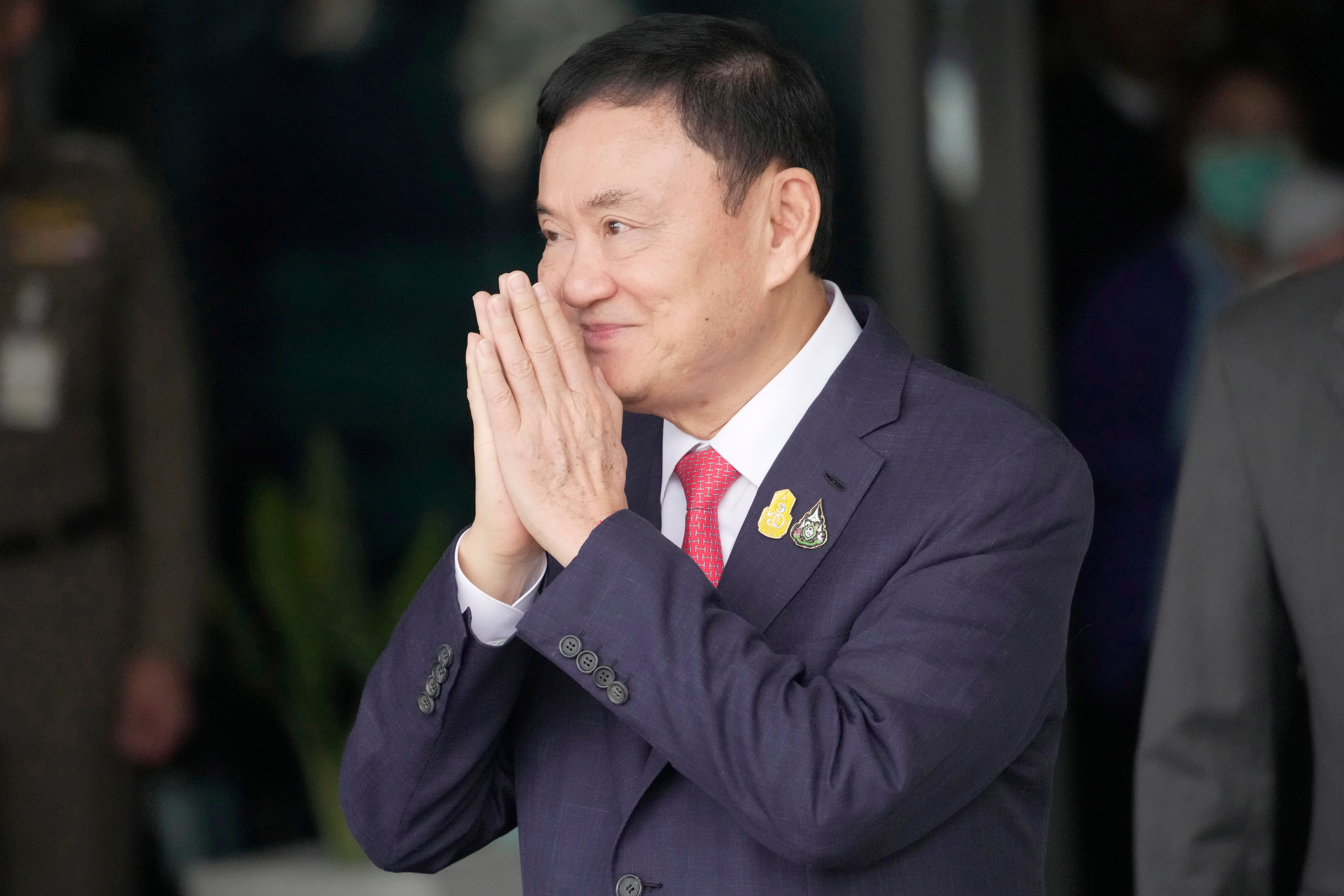Former Thai leader Thaksin Shinawatra, jailed after returning from exile, requests a royal pardon
Former Thai Prime Minister Thaksin Shinawatra, who recently returned from exile and began serving an eight-year prison term, has requested a royal pardon

Your support helps us to tell the story
From reproductive rights to climate change to Big Tech, The Independent is on the ground when the story is developing. Whether it's investigating the financials of Elon Musk's pro-Trump PAC or producing our latest documentary, 'The A Word', which shines a light on the American women fighting for reproductive rights, we know how important it is to parse out the facts from the messaging.
At such a critical moment in US history, we need reporters on the ground. Your donation allows us to keep sending journalists to speak to both sides of the story.
The Independent is trusted by Americans across the entire political spectrum. And unlike many other quality news outlets, we choose not to lock Americans out of our reporting and analysis with paywalls. We believe quality journalism should be available to everyone, paid for by those who can afford it.
Your support makes all the difference.Former Thai Prime Minister Thaksin Shinawatra, who recently returned from exile and began serving an eight-year prison term, has requested a royal pardon, a senior member of the outgoing Cabinet said Thursday. Thaksin was moved from prison to a state hospital soon after his return last week for reported ill health.
Wissanu Krea-ngam, who is acting justice minister as well as a deputy prime minister, said he has received a letter from Thaksin requesting a pardon, but declined to say how long it would take to be approved.
“The process of approval entirely depends on his royal grace,” he said. Thailand is a constitutional monarchy, giving King Maha Vajiralongkorn the final word on pardons of convicted criminals.
Thaksin, by promoting populist policies and using the fortune he made in telecommunications to build his own political party, was elected prime minister in 2001 and easily reelected in 2005. He was ousted in a military coup in 2006 and accused of corruption, abuse of power and disrespecting the monarchy.
He returned last week after 15 years of self-imposed exile and was immediately sent to Bangkok’s main prison because of several criminal convictions he has decried as politically motivated.
Hours after Thaksin’s return, Srettha Thavisin of the Pheu Thai party won enough votes in Parliament to become prime minister, ending more than three months of uncertainty after May's general election. Pheu Thai is the latest in a string of parties affiliated with Thaksin.
To achieve a parliamentary majority, Srettha formed a coalition with pro-military parties linked to a 2014 coup that ousted a Pheu Thai government formed by Thaksin’s sister, Yingluck Shinawatra. Pheu Thai had vowed during the May election campaign that it would not join with any pro-military party in forming a government. It also excluded the progressive Move Forward Party, which won the most seats and votes in the polls.
It is widely believed that Thaksin returned out of hope that a new government friendly to him would reduce his sentence and that he may have made a deal with authorities, although he has said his decision had nothing to do with the Pheu Thai party’s bid for power.
Srettha told reporters on Thursday that he expects to submit a list of his new Cabinet ministers for royal endorsement on Friday.
There is growing criticism that Thaksin has received special treatment compared to other inmates, including not having to get a prison-style haircut. He was also transferred to a hospital just hours after being taken to prison, a move which officials attributed to several health problems. His daughter Paetongtarn Shinawatra, a key Pheu Thai member, said he is suffering from fatigue and stress, including complications from contracting the coronavirus in 2020.
Thaksin, 74, a police lieutenant colonel before becoming a businessman, is being treated in a private room at the state-run Police General Hospital, where the director said he was in serious condition with heart and lung problems.
His swift transfer has prompted calls for proof that he is genuinely sick. A group of conservative political activists went to the hospital last week demanding that it release information about his condition and treatment.
Wissanu said Thaksin's health condition could support his case for a pardon.